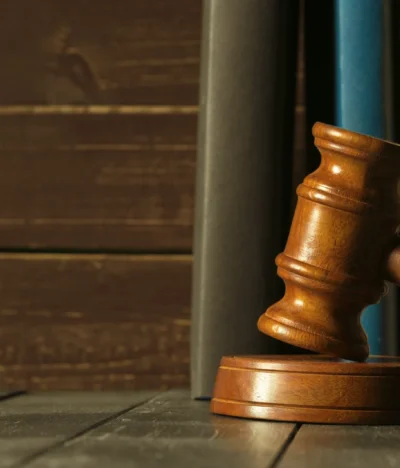Whilst no one ever enters into a marriage expecting to separate or divorce, recent census information tells us that the average length of marriage in the UK is 11.9 years for opposite sex couples with the average age being 43.9 for women and 46.4 for men. That’s around 42% of marriages/civil partnerships breaking down.
Why should I draw up a prenuptial agreement?
These stats show us that this is a very good reason to draw up a prenuptial agreement – or prenup – to protect yourself and your assets. A prenup is becoming an ever-popular way of protecting family wealth. It is essentially a contract between partners in an intended marriage or civil partnership who would normally co-habit before tying the knot. It’s not always spouses sharing assets either; any asset share for children from the current or previous relationships can be included in the contract.
Is this right for me?
We’d like to think so. After all you take out insurance for your home, your car, and your pets, so why not take out an insurance policy against a failed marriage? Modern relationships increasingly view prenups as practical and fair, especially when children and assets are involved.
Whilst you may feel that you don’t have a significant amount of assets to protect, that doesn’t necessary mean that a prenup isn’t something that you should consider; similarly, if you go into a relationship with a considerable portfolio of assets, it is well worth drawing up a prenup to protect your current and future wealth. Imagine if one partner is significantly wealthier than the other and the marriage fails, they will stand to lose a lot more than the other if there is to be an equal split in any settlement. With a prenup you are able to protect existing wealth that has been accumulated long before any proposal of marriage. It can also protect future wealth generated from a business venture, career success or further financial wins. Similarly, the party with less assets should not be left unprovided for.
Is a prenup legally binding?
Although a prenup isn’t legally binding in England and Wales, it can still be a huge help. When a couple enter into a prenuptial contract before getting wed, it outlines ownership of assets respectively and if separation or divorce follows, it can help the court to distribute your assets as you intended. Naturally, as with most things in life, there are certain criteria which must be met. Before your prenup can be validated:
- Each party must provide full disclosure of all assets, liabilities and any debts in the agreement
- The agreement must be voluntary
- It must be unbiased, written up correctly, signed and witnessed and, above all, must be fair. It can’t be used to wriggle out of providing for your ex-partner’s needs at the point of divorce otherwise it could become invalid
Consideration should be given to the following:
Family home: How will your family home be divided or will one of you continue to live in the property?
Financials – individual and joint: Agree the division of money held by one person, both parties, in joint or separate accounts which includes day to day accounts, savings and investments.
Debt: Is there any debt liability involved for either party and how will this be apportioned?
Children: Protect any children from your marriage or a previous relationship in terms of their future right to any of your property or assets.
Pre-existing property: Second homes, holiday homes and business premises that have been brought into the marriage need to be included.
Inheritance/Trusts: Safeguard any assets gifted to one of the parties or inherited before the marriage, as well as any assets gained from a Trust.
Although the list above is not exclusive nor exhaustive, it’s a lot in terms of assets. So, whilst not legally binding, having a prenup in place carries a lot of weight in court during divorce proceedings as long as it has been drawn up correctly.
The court will consider all of the circumstances including:
- How the agreement was entered into
- The timing of the agreement and proximity to the marriage
- Whether the parties had taken legal advice independently before signing
- All of which will hopefully lead to a satisfactory and fair outcome for both parties.
Always seek professional advice
Here at Arlingsworth Solicitors, we understand the complexities and legal requirements around marriage breakdown including prenuptial agreements, separation and divorce. Be are here to offer professional support 24/7 and provide you with the very best legal advice and representation.
If you, or someone you know, needs assistance, please contact our Brighton office on: +44 (0) 1273 696962 or our London office on: +44 (0) 203 358 0058. Alternatively, request a callback, or email info@arlingsworth.com. You can also follow us on social media for any other important news and updates.
The information in this blog is intended for general information only. It is up-to-date at the time of writing. However, it does not constitute legal advice and should not be treated or relied upon as such. It is provided without any representations or warranties, express or implied.







